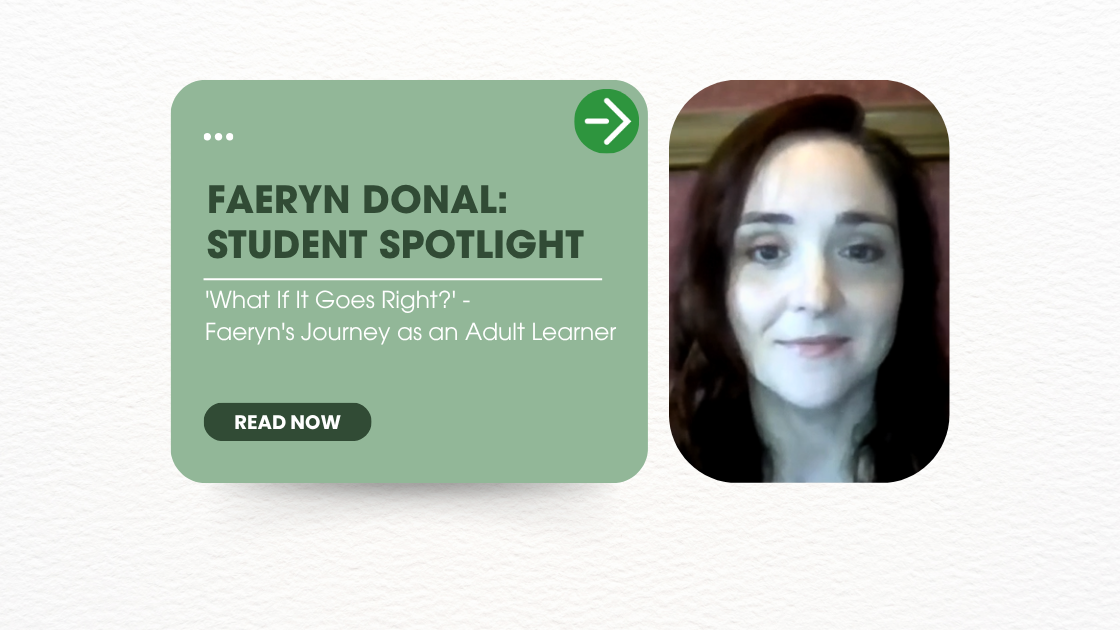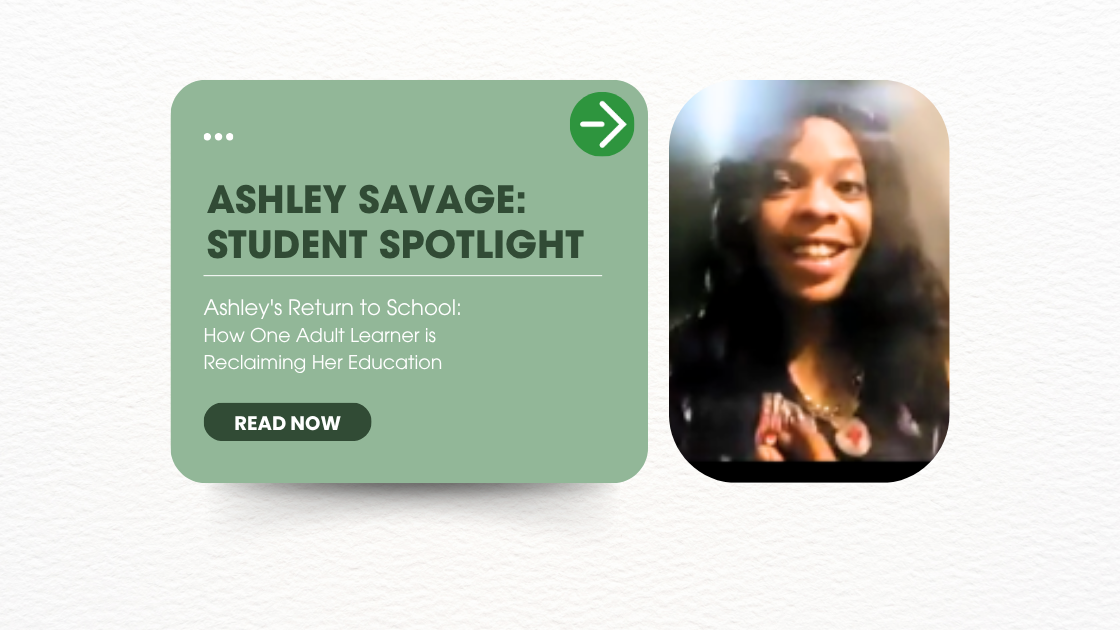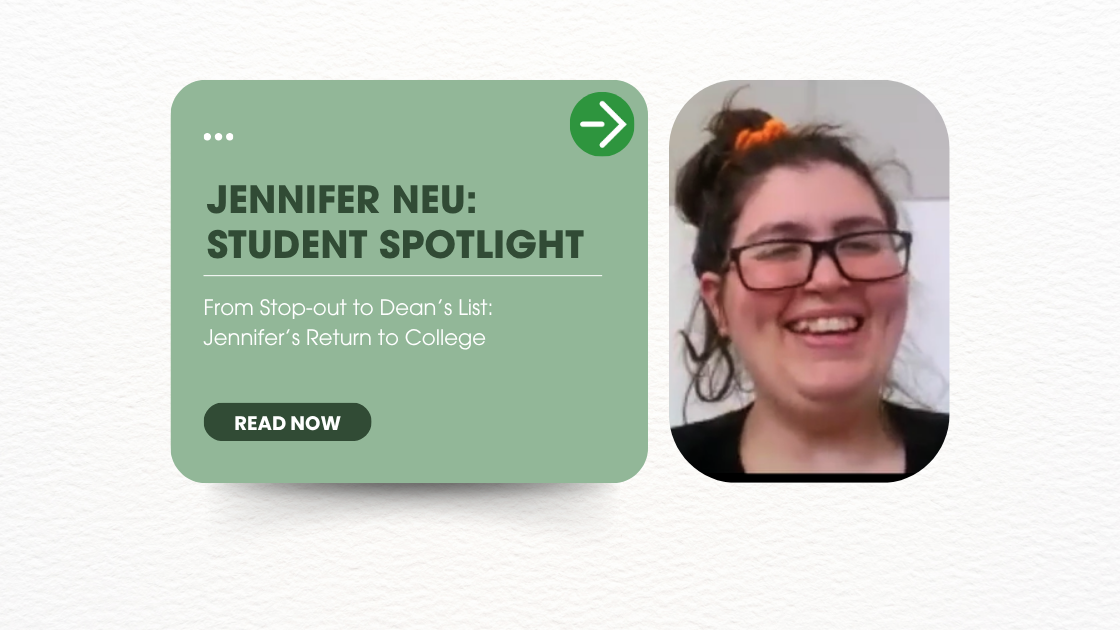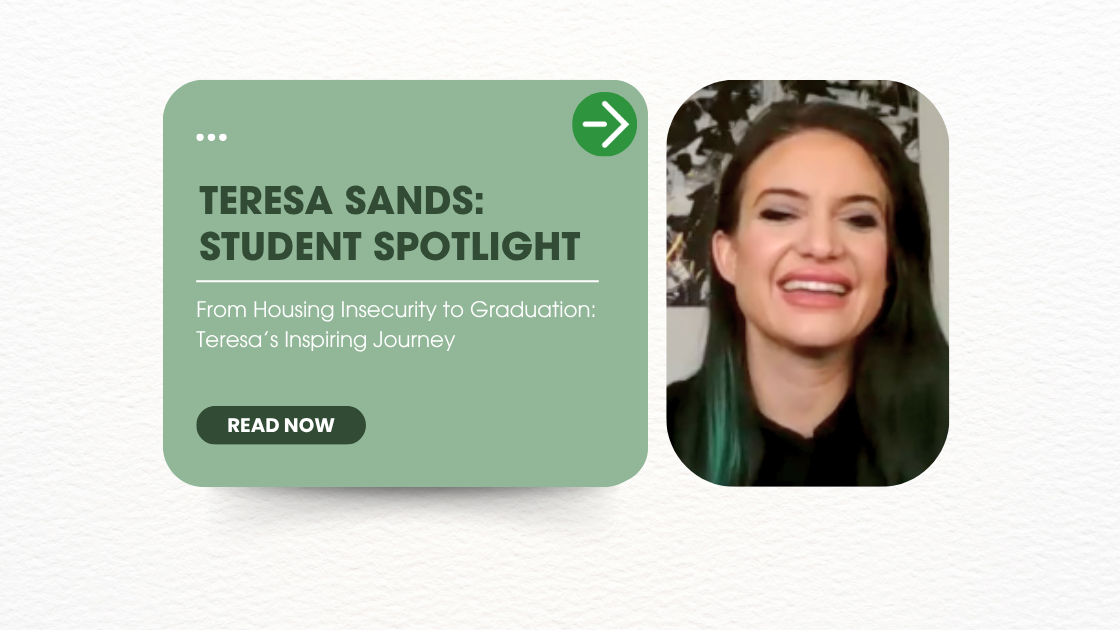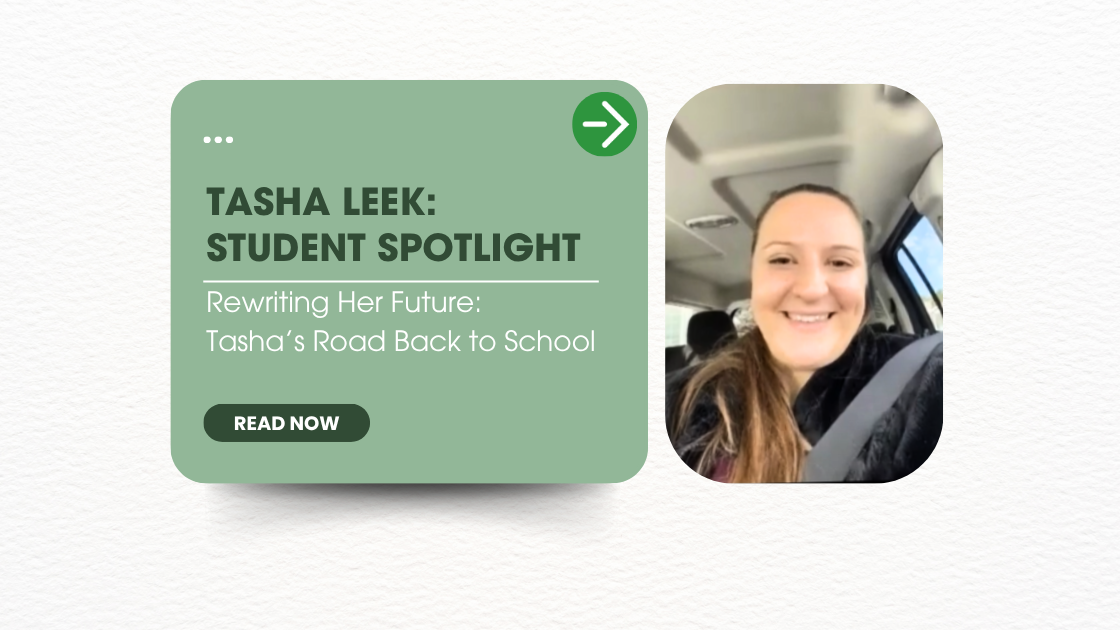‘What If It Goes Right?’ Faeryn’s Journey as an Adult Learner
Faeryn’s journey is one of remarkable perseverance and rediscovered potential.
She returned to college after many years away from the classroom, unsure of what to expect. Today, she’s not only thriving academically, she’s landed on the Dean’s List and is confidently pursuing a psychology degree with aspirations to become a trauma-informed therapist for teens. What changed? According to Faeryn, the structured pace of taking one class at a time and the personal support she received through myFootpath made all the difference. “The work isn’t easy,” she shared, “but it’s manageable. Once I realized I could do it, it became easier. That surprised me.”
Faeryn was hesitant to return to school, having not excelled in her previous educational journey, but she found herself supported at every step of the way, from navigating college systems to managing coursework around her life. “Having someone there to guide me through the process and check in along the way helped me believe I could do it,” she said. For Faeryn, school is no longer a source of stress but a place where her strengths are emerging and her future is taking shape.
One of the most inspiring parts of Faeryn’s story is her advice to others: “If there’s even a small part of you thinking about going back to school, that means there’s a part of you that believes in yourself. Listen to it.” She encourages prospective students to say “What if it goes right?” - a mindset shift that has fueled her success. Despite juggling school, work, and kids, Faeryn credits simple time management, such as blocking out two days a week for coursework, as key to staying on track.
Faeryn’s story is proof that with the right support and a manageable path forward, adult learners can exceed even their own expectations. At myFootpath, we’re honored to walk alongside students like Faeryn as they reclaim their education.

